The Beginner's Guide to the Affrilachian Poets
Here's an introduction to the work of the Affrilachian Poets. This is just an introduction—a leaping off point. There's much more to be discovered, but you can start here. Enjoy!
1/6/202525 min read
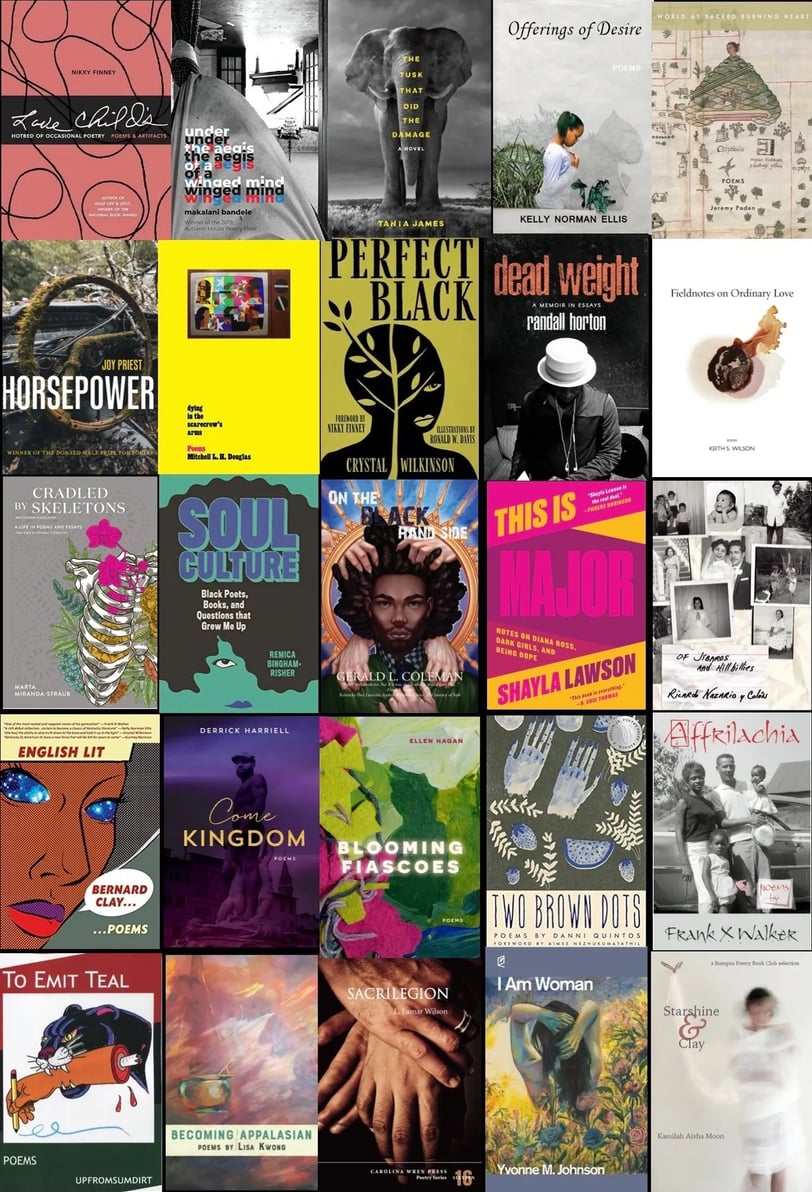

I arrived at the University of Kentucky unaware of a lot. That's to be expected of an 18 year old. I honestly thought, given my limited experience, that I was the only black guy writing poetry among my contemporaries. Everyone else was into music—specifically hip hop, girls, sneakers, and the like. I was into those things too—Kings from Queens from Queens come Kings/We're raisin hell like a class when the lunchbell rings, (Run DMC)—but I was also into Dungeons & Dragons, Martial Arts, Comic Books, and poetry.
So when I ran into Frank X Walker, who would become my brother many times over (Phi Beta Sigma—a historically black fraternity, Affrilachian Poet (more on that in a moment), golfing companion, and fellow brother in the struggle for social justice), I was astonished to discover that he, too, wrote poetry. Eventually we'd be joined by Ricardo Nazario-Colon, Kelly Ellis Norman, Crystal Wilkinson, Mitchell L. H. Douglas, Jude Mcpherson, and more in our small troop of fledging poets claiming that name—Poet—for ourselves.
At the time, lexington held an event at the Opera House billed as something to effect of the best poets in kentucky, or some such asservation. I was in a poetry class led by George Ella Lyon and the class was encouraged to attend. Afterward, I ran into Frank about halfway up the hall and we talked about how the only black person on that stage that night was Nikky Finney. Now we LOVE Nikky, and she's one of us, though she hails from South Carolina. It left us wondering why they'd been unable, or unwilling, to find some black Kentucky writers to add to the program.
We went back to sharing poetry like guerrilla warriors who'd embarked on an insurrection—buffalo soldiers from Kentucky (and the Bronx, south carolina, puerto rico, mississippi, etc, etc (-: ) but mostly, Kentucky—more broadly? Appalachia. We used to step onto the elevator in the student center, wait for the doors to close, and then push the emergency stop button. We'd share the most recent thing we'd written in a round robin and when we were finished we'd push the stop button again, and when the doors opened, exit like nothing had happened—sometimes to the screwed up faces of people who'd been waiting to use it. (That was rare. That elevator was almost never used, which is why we felt confident using it in that way)
Then Frank had a moment of genius—he came up with the name Affrilachian. African and Appalachian mixed together like a bowl of beans with some cornbread. And just like that, we became the Affrilachian Poets.
It's been decades now. In the interim there's been Rhysling Award nominations, National Book Awards, Poet Laureate naming, NAACP Awards, Fellowships, multiple book awards, and a host of accolades for some of the best writers I know. I'm honored to be in their number.
I also write science fiction and fantasy. And a few years ago, moved by the constant drumbeat of people saying they didn't know where to find SF&F by black authors, I created the first Beginner's Guide to Black Science Fiction & Fantasy. It was received so well, I created a part 2. Soon there'll be a part 3.
People were so interested in it that I began to wonder why no one was doing something similar for black poets, and poets of color. So, I decided to create this list as an introduction to the Affrilachian Poets. And here it is: a beginners guide to the Affrilachian Poets. Enjoy. And feel free to share it!
If you'd like to purchase anything on this list you can find them here: https://bookshop.org/lists/beginner-s-guide-to-the-affrilachian-poets
BOOKSHOP was set up as an alternative to Amazon because local independent bookstores were being put out of business. I like bookshop because a percentage of every sale goes to Independent book stores. All the store has to do is sign up and they get a part of the fund bookshop has set up. To-date bookshop has donated over 35 Million dollars to local bookstores. So, if you're inclined, please use bookshop!
Now, here's the Guide!
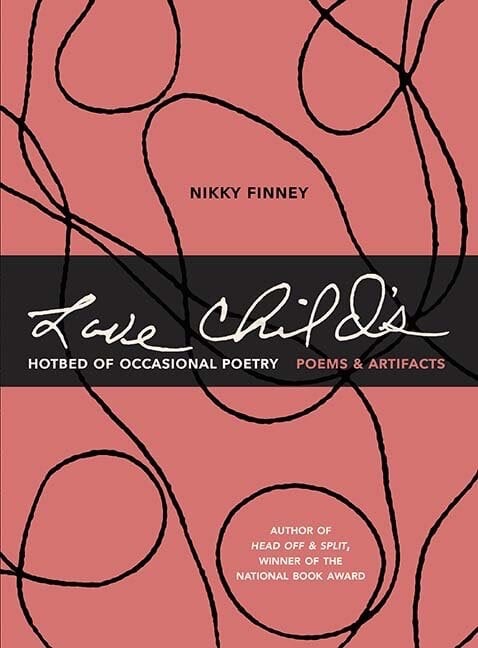

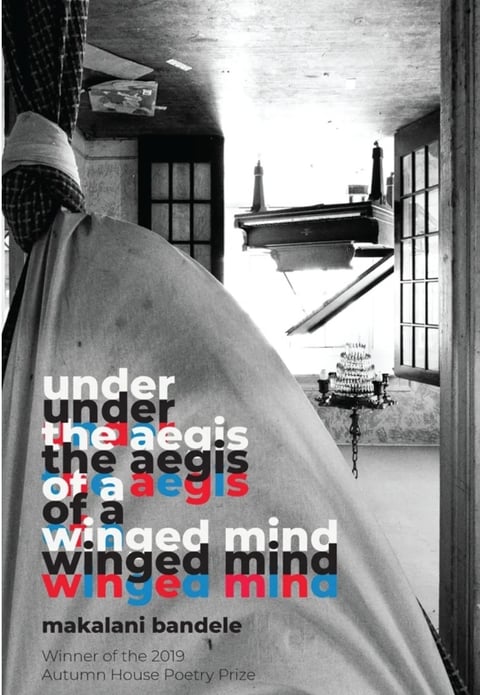

Love Child's Hotbed of Occasional Poetry: Poems & Artifacts by Nikky Finney
Finalist, Los Angeles Times Book Prize for Poetry
Love Child’s Hotbed of Occasional Poetry is a twenty-first-century paean to the sterling love songs humming throughout four hundred years of black American life. National Book Award winner Nikky Finney’s fifth collection contains lighthouse poems, narrative hotbeds, and treasured artifacts—copper coins struck from a new matrix for poetry, one that testifies from the witness stand and punctuates the occasional lyric within a new language of “docu-poetry.”
The ancestors arise and fly, and the black female body is the “insurgent sensualist,” hunted but fighting to live and love in the ways it wants and knows best: “I loved being / a black girl but had not yet learned / to play dead . . .”
The tenderness of a father’s handwritten notes shadows the collection like a ghost, while the treasured, not-for-sale interiority of a black girl’s fountainhead takes over every page. “One yellaw gal with an all-black tongue has gone missing.” Finney has composed a new black spiritual, and one of the great voices of our time again stamps her singular sound into the new day.
under the aegis of a winged mind by Makalani Bandele
The poems in under the aegis of a winged mind are inspired by the life and times of the jazz composer and pianist Earl “Bud” Powell. Powell was a leading figure in the development of jazz, but throughout his life, he also faced struggles with police brutality, harassment, drug and alcohol abuse, and mental illness. In this collection, makalani bandele explores Powell’s life through a blend of both formal and free verse persona poems. These poems are multivocal, with the speaker often embodying Powell himself and sometimes a close friend or family member, the spectator of a performance, or a fellow musician.
While the book follows the narrative of Powell’s life, the poems are experimental in form and presentation. Playing with, reinventing, and restructuring poetic form, bandele draws on blues and jazz music theory to serve as a basis for much of the work’s construction. He uses language to recreate the experience of music itself, and his poetry includes a multitude of references and allusion to music lyrics and other poems. As the book recounts Powell’s life, it also explores how Black genius has encountered, struggled against, and developed mechanisms to cope with White supremacy in the United States. under the aegis of a winged mind won the 2019 Autumn House Press Poetry Prize.
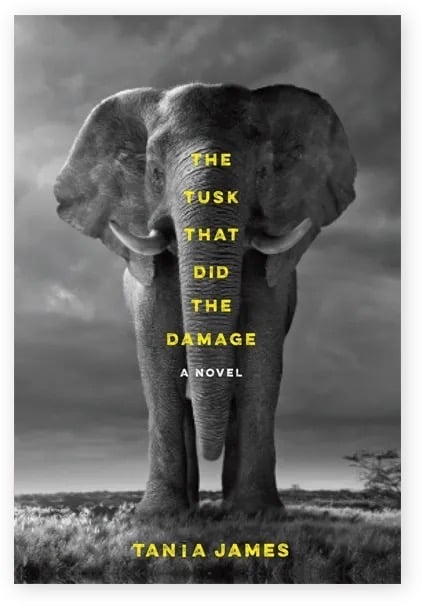

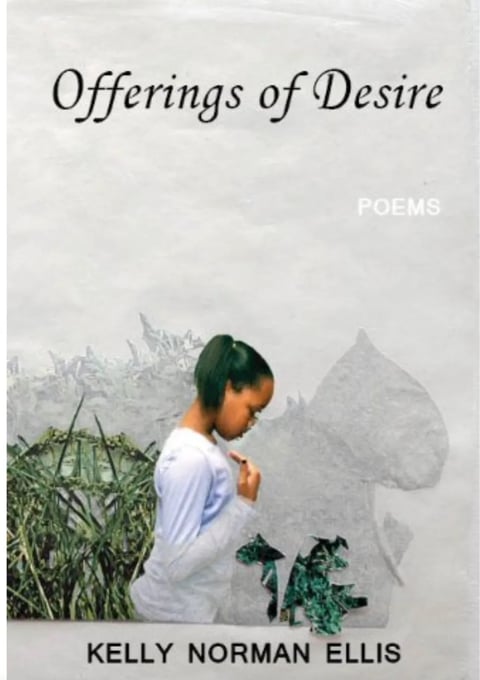

The Tusk That Did the Damage: A novel by Tania James
From the critically acclaimed author of Atlas of Unknowns and Aerogrammes, a tour de force set in South India that plumbs the moral complexities of the ivory trade through the eyes of a poacher, a documentary filmmaker, and, in a feat of audacious imagination, an infamous elephant known as the Gravedigger.
Orphaned by poachers as a calf and sold into a life of labor and exhibition, the Gravedigger breaks free of his chains and begins terrorizing the countryside, earning his name from the humans he kills and then tenderly buries. Manu, the studious younger son of a rice farmer, loses his cousin to the Gravedigger’s violence and is drawn, with his wayward brother Jayan, into the sordid, alluring world of poaching. Emma is a young American working on a documentary with her college best friend, who witnesses the porous boundary between conservation and corruption and finds herself in her own moral gray area: a risky affair with the veterinarian who is the film’s subject. As the novel hurtles toward its tragic climax, these three storylines fuse into a wrenching meditation on love and betrayal, duty and loyalty, and the vexed relationship between man and nature.
With lyricism and suspense, Tania James animates the rural landscapes where Western idealism clashes with local reality; where a farmer’s livelihood can be destroyed by a rampaging elephant; where men are driven to poaching. In James’ arrestingly beautiful prose, The Tusk That Did the Damage blends the mythical and the political to tell a wholly original, utterly contemporary story about the majestic animal, both god and menace, that has mesmerized us for centuries.
Offerings of Desire by Dr. Kelly Norman Ellis
Poetry. African American Studies. "In Kelly Norman Ellis's long-awaited second collection, a grand cinema of black life is honey-beamed and balanced on a 'nipple of coal.' Somewhere in the middle of turning these pages, the reader will helplessly rise and mercilessly hunt for dirty rice and Bill Withers. It is indeed the poet's job to save something, but Ellis does more—she swears to paper a luscious book so rich with black zest and drylongso that each page sets high our thirst for all that is human, longed for and inexplicable."—Nikky Finney
"Every stanza in this fierce and formidable collection strikes a sweet, keening note for the colored girl—the front-row-center Sunday morning worshipper, the fast gal craving the jukebox on Saturday night, the grandmama arced over a stove-top staple, the precocious nappy-headed chile tripping the double-dutch line. With OFFERINGS OF DESIRE, Kelly Norman Ellis has graced us all with a gift that is nothing short of a miracle. She has blessed the sisterhood with a soundtrack."—Patricia Smith
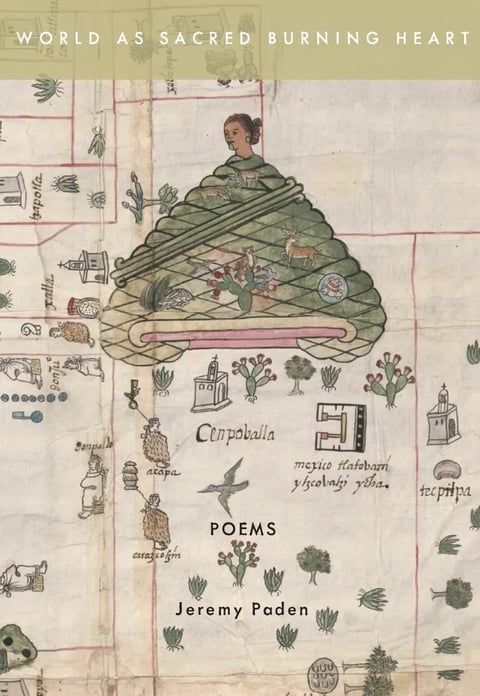

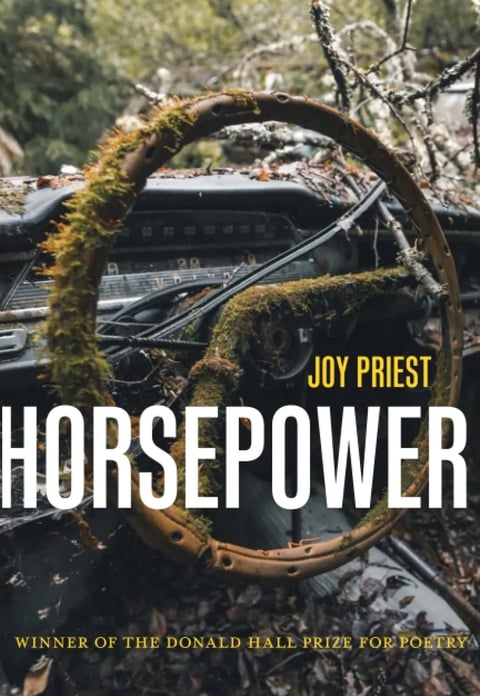

World As Sacred Burning Heart by Jeremy Paden
In World As Sacred Burning Heart, Jeremy Paden offers a collection of poems set in Colonial Latin America that weaves together three strands. There are prose poems about Captains like Columbus, Cortés, and Las Casas that play with the language and syntax of sixteenth-century chronicles. These poems use irony to interrogate the official story. The second strand is ekphrastic poems on maps, on quipus, on Aztec featherwork mosaics, and other cultural objects. The third strand is poems of resistance and poems of coming into knowledge.
To live in the American hemisphere is to live in a colonial state. These poems examine and interrogate that legacy. They respond to the self-aggrandizing myths the Western world tells itself about its own past. This collection argues that America (North and South) is a palimpsest, a layered story, born out of colonial occupation and resistance. Ultimately, these poems ask two urgent questions: can we live with “the madness/of finally knowing who we are?” and “how do we sing a song that remembers the world into wholeness?”
You can find World As Sacred Burning Heart here: https://3taospress.com/authors/jeremy-paden/
Horsepower: Poems (Pitt Poetry Series) by Joy Priest
Priest’s debut collection, Horsepower, is a cinematic escape narrative that radically envisions a daughter’s waywardness as aspirational. Across the book’s three sequences, we find the black-girl speaker in the midst of a self-imposed exile, going back in memory to explore her younger self—a mixed-race child being raised by her white supremacist grandfather in the shadow of Churchill Downs, Kentucky’s world-famous horseracing track—before arriving in a state of self-awareness to confront the personal and political landscape of a harshly segregated Louisville. Out of a space that is at once southern and urban, violent and beautiful, racially-charged and working-class, she attempts to transcend her social and economic circumstances. Across the collection, Priest writes a horse that acts as a metaphysical engine of flight, showing us how to throw off the harness and sustain wildness. Unlike the traditional Bildungsroman, Priest presents a non-linear narrative in which the speaker lacks the freedom to come of age naively in the urban South, and must instead, from the beginning, possess the wisdom of “the horses & their restless minds.”
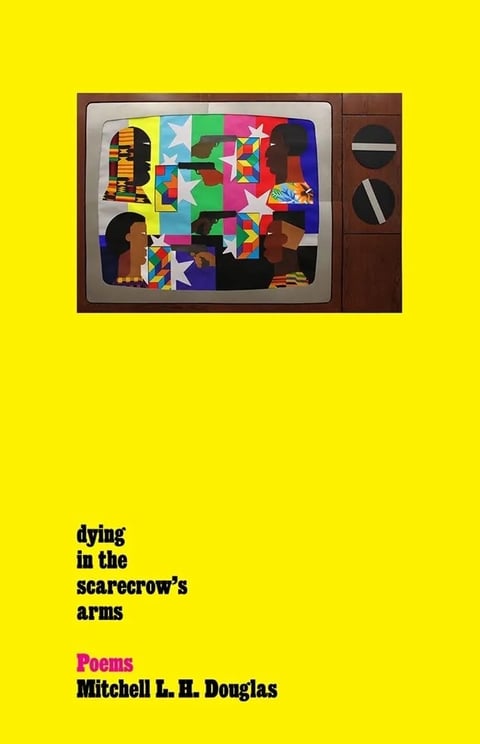

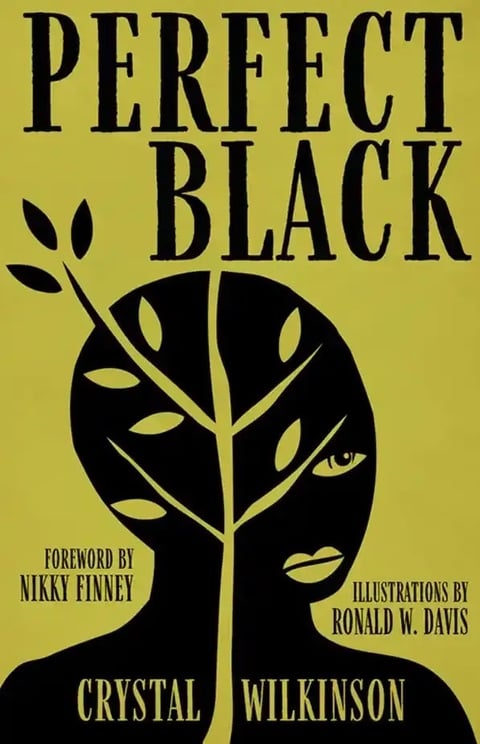

dying in the scarecrow's arms: Poems by Mitchell L. H. Douglas
"In his third book Mitchell L. H. Douglas delivers a lyric bildungsroman, a hymnal of manhood, eerily guided from page one by Etheridge Knight, who, like Douglas, lived a full life at the cursed cross of Kentucky or Indiana, enslavement or liberation, incarceration or career. What does it mean to make love, grocery shop, make it home, each night, safe? dying in the scarecrow's arms is our needed testament of black life mattering, of a man owning his own, because, by God, he can."
― Rebecca Gayle Howell, author of "American Purgatory"
A rebuke of American racism and violence by a poet of “scrutinizing intellect, imagination, and soul” (Terrance Hayes).
In urgent new poems, Mitchell L. H. Douglas depicts the assault on people of color in America’s increasingly divided Heartland. A devotee of American popular culture, from rock ’n’ roll to Star Wars to Marvel comic books, Douglas now wonders whether we will withstand its most odious, self-destructive elements in this searing collection.
Perfect Black by Crystal Wilkinson
2022 NAACP Image Award Winner
Crystal Wilkinson combines a deep love for her rural roots with a passion for language and storytelling in this compelling collection of poetry and prose about girlhood, racism, and political awakening, imbued with vivid imagery of growing up in Southern Appalachia. InPerfect Black, the acclaimed writer muses on such topics as motherhood, the politics of her Black body, lost fathers, mental illness, sexual abuse, and religion. It is a captivating conversation about life, love, loss, and pain, interwoven with striking illustrations by her long-time partner, Ronald W. Davis.
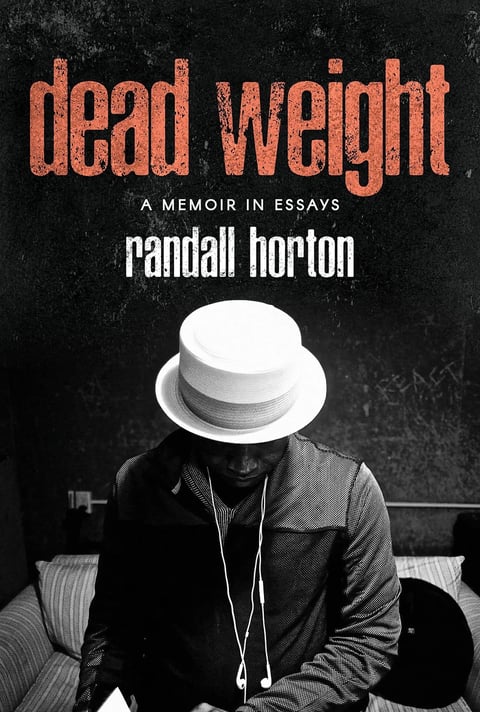

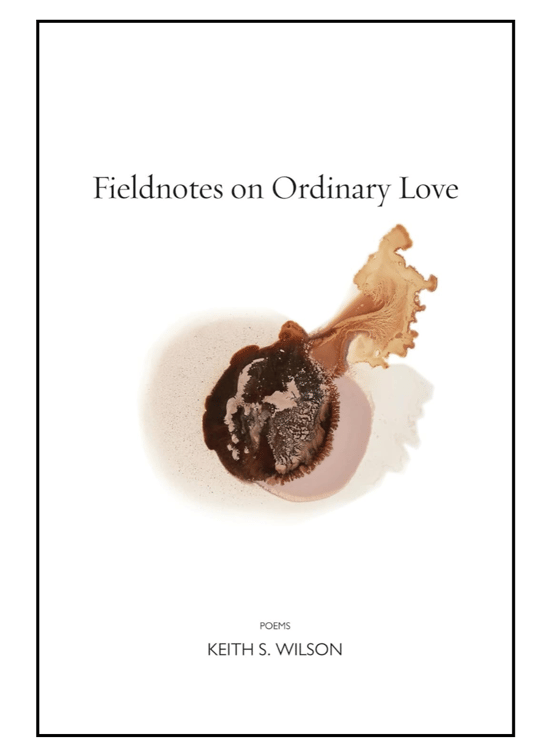

Dead Weight: A Memoir in Essays by Randall Horton
Dead Weight chronicles the improbable turnaround of a drug smuggler who, after being sentenced to eight years in state prison, returned to society to earn a PhD in creative writing and become the only tenured professor in the United States with seven felony convictions. Horton’s visceral essays highlight the difficulties of trying to change one’s life for the better, how the weight of felony convictions never dissipates.
The memoir begins with a conversation between Horton and Ralph Ellison’s Invisible Man statue in New York City. Their imagined dialogue examines the psychological impact of racism on Black men and boys, including Horton’s separation from his mother, immediately after his birth, in a segregated Alabama hospital. From his current life as a professor and prison reformer, Horton looks back on his experiences as a drug smuggler and trafficker during the 1980s–1990s as well as the many obstacles he faced after his release. He also examines the lasting impact of his drug activity on those around him, reflecting on the allure of economic freedom and the mental escapism that cocaine provided, an allure so strong that both sellers and users were willing to risk prison. Horton shares historical context and vivid details about people caught in the war on drugs who became unsuspecting protagonists in somebody else’s melodrama.
Lyrical and gripping, Dead Weight reveals the lifelong effects of one man’s incarceration on his psyche, his memories, and his daily experience of American society.
Fieldnotes on Ordinary Love by Keith S. Wilson
“Wilson’s collection is romantic yet world-weary, bereaved yet fortified―a kindred reflection of the heart in the modern world.” ―Publishers WeeklyFieldnotes on Ordinary Love is a collection whose poems approach family, politics, and romance, often through the lens of space: the vagaries of a relationship full of wonder and coldness, separation and exploration. There is the sense of the speaker as a cartographer of familiar spaces, of land he has never left or relationships that have stayed with him for years, and always with the newness of an alien or stranger. Acutely attuned to the heritage of Greco-Roman myth, Wilson writes through characters such as the Basilisk and the Minotaur, emphasizing the intense loneliness these characters experience from their uniqueness. For the racially ambiguous speaker of these poems, who is both black and not black, who has lived between the American South and the Midwest, there are no easy answers. From the fields of Kentucky to the pigeon coops of Chicago, identities and locations blur―the pastoral bleeds into the Afrofuturist, black into white and back again.
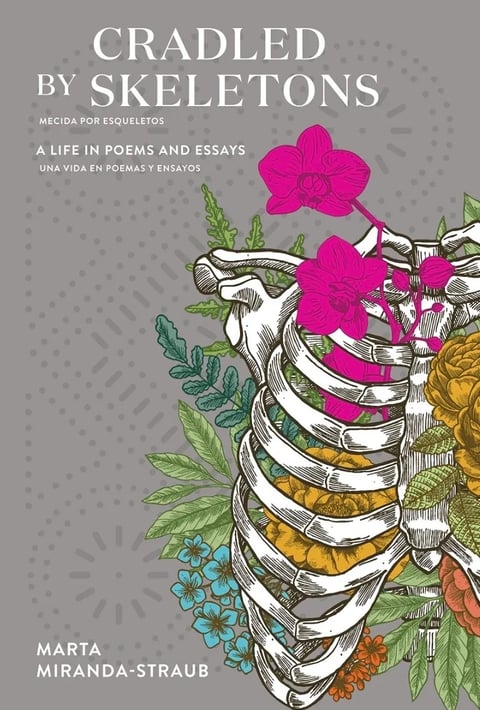

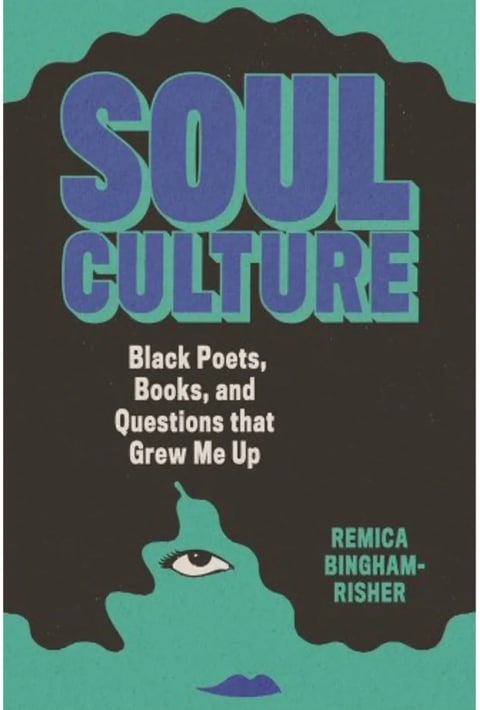

Cradled by Skeletons by Marta Miranda-Straub
The heartfelt poetry and essays in Cradled by Skeletons impart an argument that all be welcomed, as all are worthy.
At once intimate, poignant, and raw, the entries of Cuban American poet, essayist, and activist Marta Miranda-Straub s Cradled by Skeletons reflect how she lives, loves, and creates at the intersections of queerness, feminism, and of being an American immigrant of color. Foreword Clarion Reviews
Cradled by Skeletons: A Life in Poems and Essays (Mecida por Esqueletos: Una Vida en Poems y Ensayos) is a raw expression of identity and place. This memoir relates Marta Miranda-Straub s experience of trauma, resilience, and transformation. The book also portrays how her life s work as a social worker, educator, leader, activist, advocate, and community organizer has been fueled by discernment, resistance, and transformation of individual, institutional, and societal systems of power. Miranda-Straub has a keen sense of awareness and she questions injustices with intention, compassion, humility and humor. There is a shared connection with both the victim and the perpetrator in her writings that exalts the grit and grace of humanity.
You can find Cradled By Skeletons here: https://www.amazon.com/Cradled-Skeletons-English-Spanish-Miranda-Straub/dp/1945049146/
Soul Culture: Black Poets, Books, and Questions that Grew Me Up by Remica L. Bingham-Risher
Examines firsthand the lives of legendary Black writers who made a way out of no way to illuminate a road map for budding creators desiring to follow in their footsteps
Acclaimed Cave Canem poet and essayist Remica Bingham-Risher interweaves personal essays and interviews she conducted over a decade with 10 distinguished Black poets, such as Lucille Clifton, Sonia Sanchez, and Patricia Smith, to explore the impact of identity, joy, love, and history on the artistic process. Each essay is thematically inspired, centered on one of her interviews, and uses quotes drawn from her talks to showcase their philosophies. Each essay also delves into how her own life and work are influenced by these elders. Essays included are these:
· “blk/wooomen revolution”
· “Girls Loving Beyoncé and Their Names”
· “The Terror of Being Destroyed”
· “Standing in the Shadows of Love”
· “Revision as Labyrinth”
Noting the frustrating tendency for Black artists to be pigeonholed into the confines of various frameworks and ideologies—Black studies, women’s studies, LGBTQIA+ studies, and so on—Bingham-Risher reveals the multitudes contained within Black poets, both past and present. By capturing the radical love ethic of Blackness amid incessant fear, she has amassed not only a wealth of knowledge about contemporary Black poetry and poetry movements but also brings to life the historical record of Black poetry from the latter half of the 20th century to the early decades of the 21st.
Examining cultural traditions, myths, and music from the Four Tops to Beyoncé, Bingham-Risher reflects on the enduring gifts of art and community. If you’ve ever felt alone on your journey into the writing world, the words of these poets are for you.
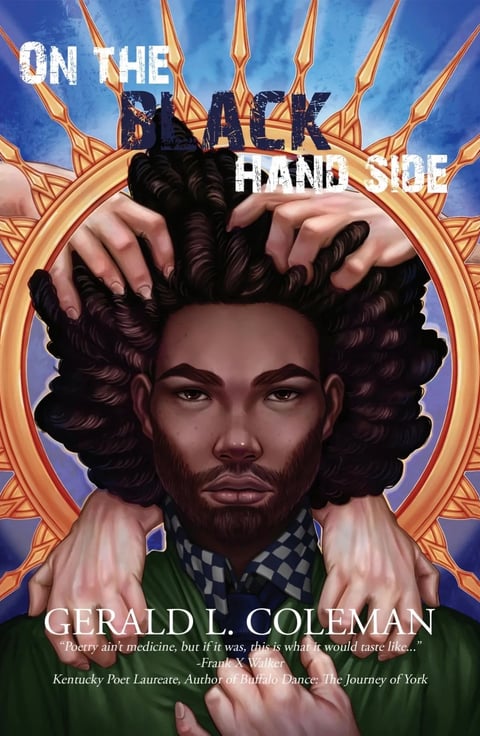

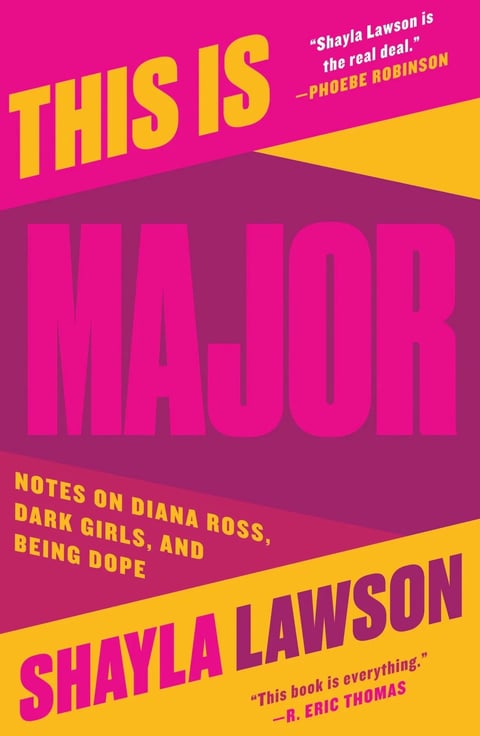

On the Black Hand Side: Poems by Gerald L. Coleman
"Poetry ain't medicine, but if it was, this is what it would taste like and this is how it would be served: In images and with verbs, with honesty and with verve. Unball that fist. Unclench your butt cheeks. Swallow this elixir, this tonic. Be grateful for your humanity, your willingness to be healed. Then, thank a poet, starting with this one."
–Frank X Walker, Kentucky Poet Laureate, NAACP Image Award in Poetry, Author of Affrilachia and Buffalo Dance: The Journey of York
"Gerald L. Coleman's "On the Black Hand Side" is part artist's manifesto, part collection of poems, and part memoir in micro-essays. This hybrid book deftly places tender and funny prose memories beside militant poems reminiscent of Langston Hughes and the latter Black Arts movement. The collection ends with some rather sexy love poems. The organizational logic is one that says, "Get to know the things I care about and I will let you get to know me." Throughout the collection, Coleman calls on philosophy, physics, theology, anthropology, and pop culture as sources for metaphor and imagery. These poems ask us to meet him "on the black hand side" and there we find a smart, witty, caring interlocutor who leaves us wanting to spend more time with him."
–Jeremy Paden, Author of World As Sacred Burning Heart
On the Black Hand Side is a collection of poems about black life, love, and justice. Coleman is engaged in the project of showing that black people's humanity, and their lives, matter. His work is a journey through his own experiences, in which—in the best traditions of poetry—he opens his literary veins and spills his own life, like incandescent blood, on the page. Coleman believes that poetry should be accessible and honest. On the Black Hand Side is a triumph in every sense. Join him as he takes you on a journey to the Black Hand Side.
This Is Major: Notes on Diana Ross, Dark Girls, and Being Dope by Shayla Lawson
A National Book Critics Circle Finalist in Autobiography Finalist for a Lambda Literary Award Named one of the most anticipated books of the year by USA Today, Bitch Magazine, Parade, Salon and Ms. Magazine
From a fierce and humorous new voice comes a relevant, insightful, and riveting collection of personal essays on the richness and resilience of black girl culture—for readers of Samantha Irby, Roxane Gay, Morgan Jerkins, and Lindy West.
Shayla Lawson is major. You don’t know who she is. Yet. But that’s okay. She is on a mission to move black girls like herself from best supporting actress to a starring role in the major narrative. Whether she’s taking on workplace microaggressions or upending racist stereotypes about her home state of Kentucky, she looks for the side of the story that isn’t always told, the places where the voices of black girls haven’t been heard.
The essays in This is Major ask questions like: Why are black women invisible to AI? What is “black girl magic”? Or: Am I one viral tweet away from becoming Twitter famous? And: How much magic does it take to land a Tinder date?
With a unique mix of personal stories, pop culture observations, and insights into politics and history, Lawson sheds light on these questions, as well as the many ways black women and girls have influenced mainstream culture—from their style, to their language, and even their art—and how “major” they really are.
Timely, enlightening, and wickedly sharp, This Is Major places black women at the center—no longer silenced, no longer the minority.
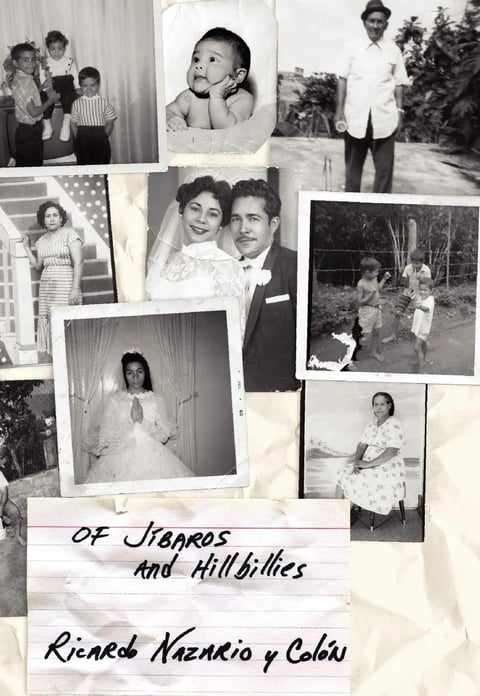

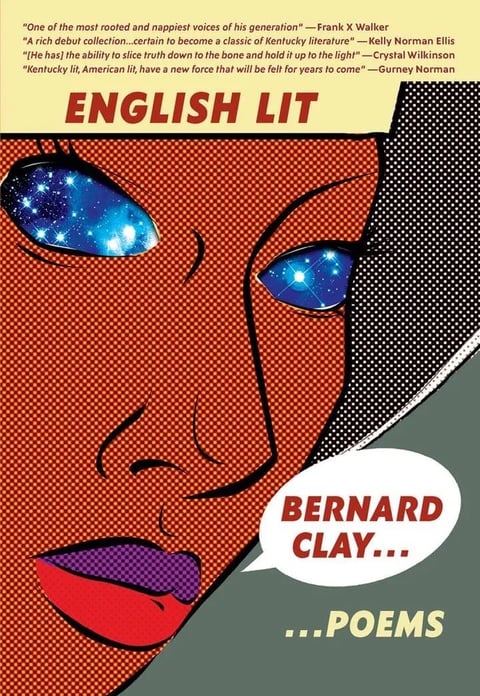

Of Jibaros and Hillbillies by Ricardo Nazario y Colón
"...this new world fraught with enormous new challenges weighted down with inherited old world problems, needs new navigational tools, new tongues unafraid of truth, and new poets with hearts and words almost too big for the treasure chests they beat in. You can find all of that and a hint of raw sugarcane in these pages."
Frank X Walker, Editor of PLUCK!
The Journal of Affrilachian Arts & Culture;
Author of Affrilachia, When Winter Come,
Black Box and more.
"In Of Jíbaros and Hillbillies, Ricardo Nazario y Colón connects the dots between Puerto Rico and Affrilachia, creating a route that is poetic narrative, grito, reflection and canción. The writing is muscular, intimately masculine, yet able to fully embrace a female essence-in poems that reference the Great Mother or in intimate connection with a woman the poet desires. The present legacy of racism, sexism, eco-exploitation, and colonialism, of psychic damage suffered in war-all are articulated here. In a favorite piece, Nazario y Colón crafts an ode/psalm to his spirit brother, Frank X Walker, where the ties that connect are lovingly etched."
Lisa Alvarado, Author of Raw Silk Suture
and Sister Chicas
"Fierce and must read it slowly."
Rane Arroyo, Poet, recent titles include:
The Buried Sea: New & Selected Poems,
and The Sky's Weight
English Lit: Poems by Bernard Clay
“There is no other poet living or dead that I can say this about, but I’ve been waiting on a book from Bernard Clay for more than twenty years. Every time I’ve ever read a single poem by him or heard him read a poem aloud I’ve wanted a volume of his work in my hands. He’s always had the ability to slice truth down to the bone and hold it up to the light. He’s grown more wise and his skills are sharp. I’m thankful these words are in the world and I’m certain that every reader who reads them will feel the same way.”
Crystal Wilkinson, author of The Birds of Opulence and founding member of the Affrilachian Poets
Autobiographical poetry from one of Kentucky’s rising Affrilachian literary stars.
Bernard Clay’s autobiographical poetry debut, English Lit, juxtaposes the roots of Black male identity against an urban and rural Kentucky landscape. Hailed as one of the most authentic voices of his generation, Clay artfully renders coming-of-age in the predominately Black West End of Louisville, Kentucky. Balancing the spirited grit of a farmer and the careful lyricism of a poet, English Lit is a triumph of new Affrilachian—African American and Appalachian—literature.
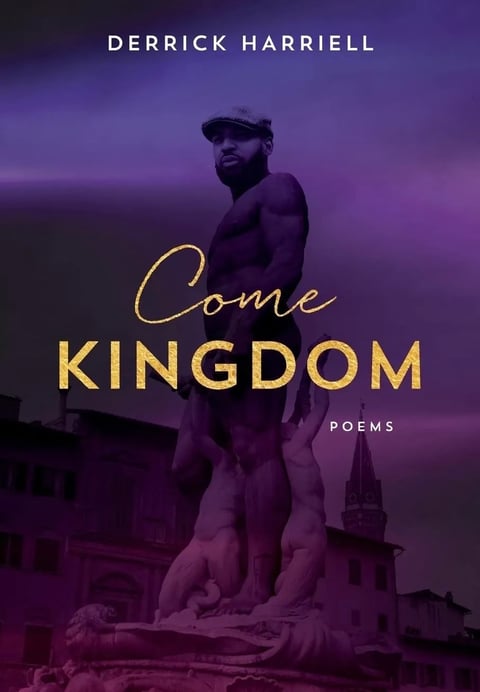

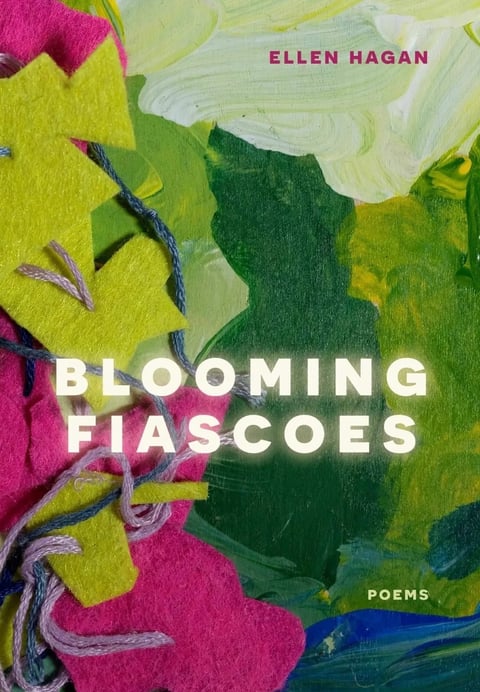

Come Kingdom: Poems by Derrick Harriell
Derrick Harriell’s new book, Come Kingdom, chronicles a Black man’s journey toward an ever-elusive American Dream with poems anchored in the trenches of personal crossroads ranging from child conception to substance abuse and racism. The collection follows a male speaker as he and his partner family plan, hoping to provide their son with a sibling. Their troubles burst through in bold poems that incorporate both medical and mental hurdles. At the same time, it pays homage to Black musical icons such as Marvin Gaye, Whitney Houston, Tupac Shakur, and Nipsey Hussle.
With spirited vulnerability and gritty lyricism, Harriell reveals the stakes and hauntings of relentless generational traumas. A tour de force of outcry and courage, Come Kingdom confronts shifting social, political, and musical climates. On a more intimate level, it also follows a couple’s desperate attempts to become parents again.
Blooming Fiascoes: Poems by Ellen Hagan
Blooming Fiascoes is a collective of verse that deconstructs identity. We are beautiful and monstrous. We live in a beautiful and monstrous world. Ellen Hagan poetically mirrors these metaphoric adversaries, drawing on her experiences as a woman, an artist, a mother, a transplanted southerner, and above all, a human being. She plumbs origins in history, body, and living to question how we reckon our whole selves in the catacombs of a world gone mad:
We mourn, we bless, / we blow, we wail, we / wind—down, we sip, / we spin, we blind, we / bend, bow & hem. We / hip, we blend, we bind, / we shake, we shine, / shine. We lips & we / teeth, we praise & protest.
In these poems, Assyrian, Italian, and Irish lines seep deeper into a body that is growing older but remains engaged with unruly encounters: the experience of raising daughters, sexual freedom, and squaring body image against the body’s prohibitions. This is a work where the legacy is still evolving and always asking questions in real time. Blooming Fiascos spindles poetry that is not afraid to see itself and the lives it inhabits.
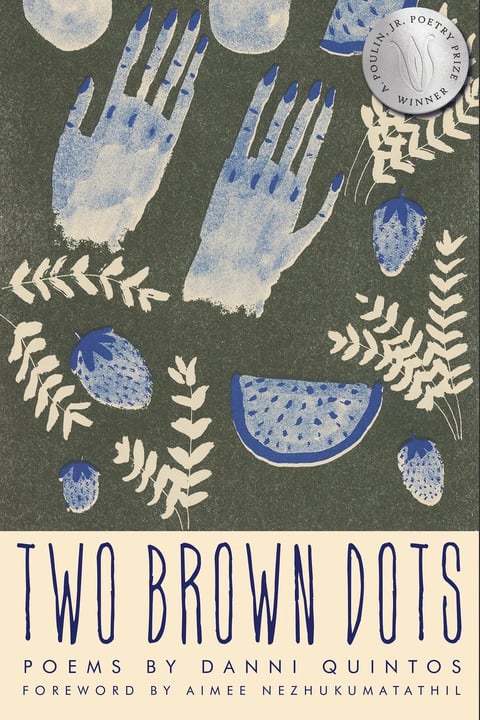

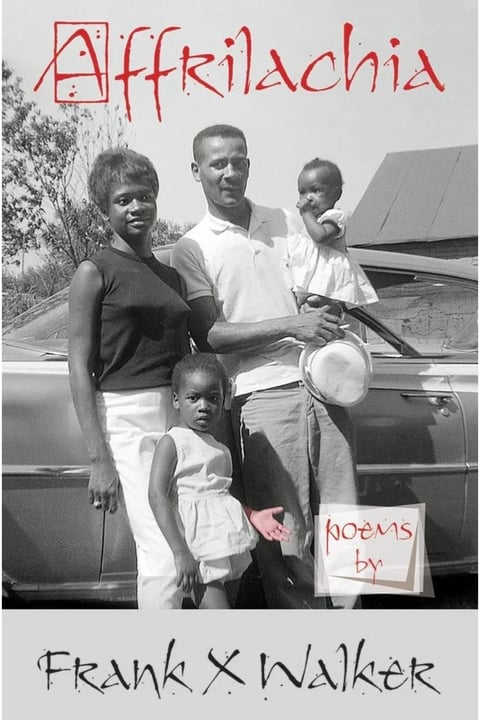

Two Brown Dots (New Poets of America, 46) by Danni Quintos
Selected by Aimee Nezhukumatathil as the winner of the A. Poulin, Jr. Poetry Prize, Danni Quintos carves a space for brown girls and weird girls in her debut collection of poems.
Two Brown Dots explores what it means to be a racially ambiguous, multiethnic, Asian American woman growing up in Kentucky. In stark, honest poems, Quintos recounts the messiness and confusion of being a typical ‘90s kid—watching Dirty Dancing at sleepovers, borrowing eye shadow out of a friend’s caboodle, crushing on a boy wearing khaki shorts to Sunday mass—while navigating the microagressions of the neighbor kids, the awkwardness of puberty, and the casual cruelties of fellow teenagers. The mixed-race daughter of a dark skinned Filipino immigrant, Quintos retells family stories and Phillipine folklore to try and make sense of an identity with roots on opposite sides of the globe.
With clear-eyed candor and a wry sense of humor, Quintos teases the line between tokenism and representation, between assimilation and belonging, offering a potent antidote to the assumption that “American” means “white.” Encompassing a whole journey from girlhood to motherhood, Two Brown Dotssubverts stereotypes to reclaim agency and pride in the realness and rawness and unprettyness of a brown girl’s body, boldly declaring: We exist, we belong, we are from here, and we will continue to be.
Affrilachia: Poems by Frank X Walker
“Finally, a gathering of words that fiercely speaks to what it truly means to grow up African American in Appalachia. These are not stories of those of us transplanted conveniently into the territory for whatever reason. These poem-stories are from a native Affrilachian heart, more specifically, from the man who first created the word in order to define and not be rendered invisible. This personal poetic narrative is a historic, valuable offering, one man’s unapologetic truth, granting us an eagle-eye view into what it means to be young, Black, artistic, and male in America as one century comes to an end and another begins. His poetry looks you in the eye, in plain-spoken unembellished, heartfelt language. Anyone who knows about the human heart and human nature can read it.”—Nikky Finney, author of Head Off & Split, winner of the 2011 National Book Award for Poetry
A milestone book of poetry at the intersection of Appalachian and African American literature.
In this pathbreaking debut collection, poet Frank X Walker tells the story of growing up young, Black, artistic, and male in one of America’s most misunderstood geographical regions. As a proud Kentucky native, Walker created the word “Affrilachia” to render visible the unique intersectional experience of African Americans living in the rural and Appalachian South.
Since its publication in 2000, Affrilachia has seen wide classroom use, and is recognized as one of the foundational works of the Affrilachian Poets, a community of writers offering new ways to think about diversity in the Appalachian region and beyond.
Published in 2000 by Old Cove Press
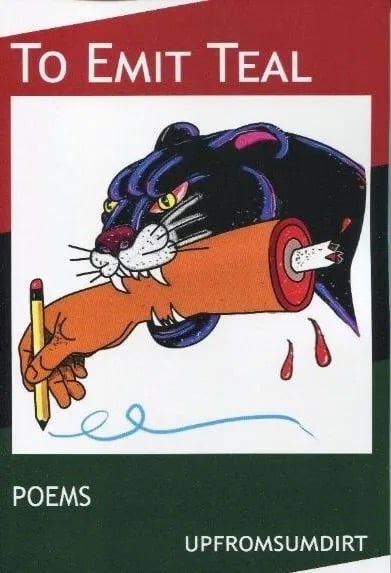

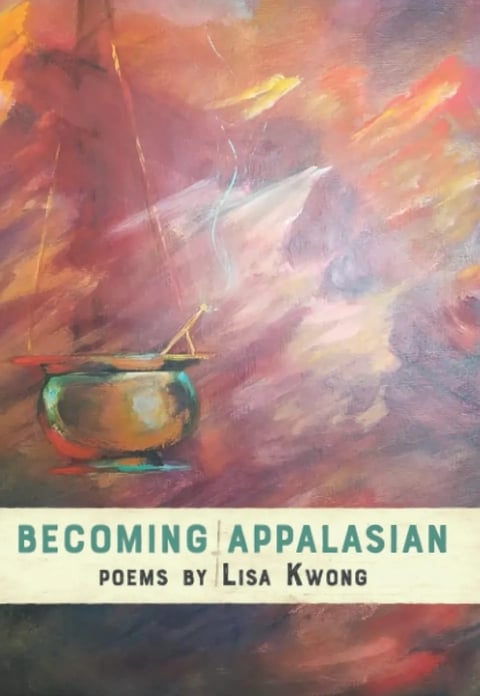

To Emit Teal: Poems by Upfromsomedirt (Ron Davis)
The title of this new volume of poetry by Upfromsumdirt packs a lot of meaning and intention into a mere three words. It is dedicated to Emmett Till, and more recent Black victims of violence, and is entirely an urgent demand for social justice. Butdon’t be fooled by the play on words, for upfromsumdirt isn’t playing around here. This isn’t a poet merely having fun with language (well, there are points where he clearly is enjoying himself), but rather a reclaiming and reinvention of language in order to engage it in the serious work at hand. In “Tea with Bojangles” he proclaims “reinvisionism is a freedom / if not a luxury, the tongues of your / indignant gods inmy painted mouth like / a mud dauber in pink cotton candy….” He knows that words have power to sting, and one word that he uses repeatedly is “Africadabra,” an act of conjuring, invoked to break “connection to the God of Chains… / His shackles leftyou spouting slave-words / from your spirit….” He knows the very language in which he writes is a legacy of slavery, and he shatters and reforges it, breaking the chain, making it a new thing. Freeing it, and with it himself, and us.
There is also a ring of science to the title, suggesting light emanating from excitation, which is no accident, for upfromsumdirt often employs the language of science, and science fiction, in his work, connecting it to Afrofuturism and the projection of afuture embracing Blackness. In “Black Wholeness: A Theorem,” he hypothesizesthat “thick = dark thighs x 40 thieves to the power of mules,” and enjoins us to“please discount all that you believe about gravity // in the romanticism of such lightless / reality a poem for love is born….”
“[S]hit happens when we raise accountants / instead of wizards,” he laments in “Playdates for Zombied Heads of State,” anxious over the world awaiting his six-year-old son. “[I]t’s as I always say: // a people without the science / to contort their skin into myth / abort the realities they want….” As a talisman against “walking rigor mortis” he places his “solemn black word” beneath the boy’s pillow. And in this volume, upfromsumdirt, wizard and poet (for are they not the same thing?) has placed many solemn black words in our ears, in hope that we might hear, and heed.
Becoming AppalAsian by Lisa Kwong
Becoming AppalAsian is a homage to Lisa Kwong's parents, ancestors, ancestral land, homeland, and chosen land. China influences the cadence through which she experiences all spaces, whether that be Radford, Virginia where she worked as a waitress in her parents' restaurant or in Bloomington, Indiana as an artist and academic in a predominantly white University town. Lisa carries the pride of her father's quest to achieve the American Dream as a Chinese immigrant as well as the triumph and turmoil of defying stereotypes in a western landscape. She is AppalAsian: a Southern woman of Asian descent raised in Appalachia who lays claim to soul food, a Southern drawl, chicken feet, and dumplings. Her poetry offers fresh language to express the complexities of her identity.
-Ciara Miller, author of Silver Bullet and founder/CEO of Miller's Learning Center (Chicago)
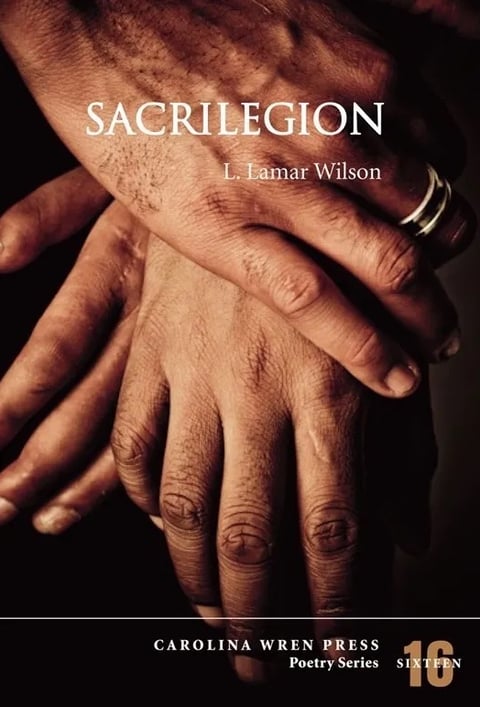

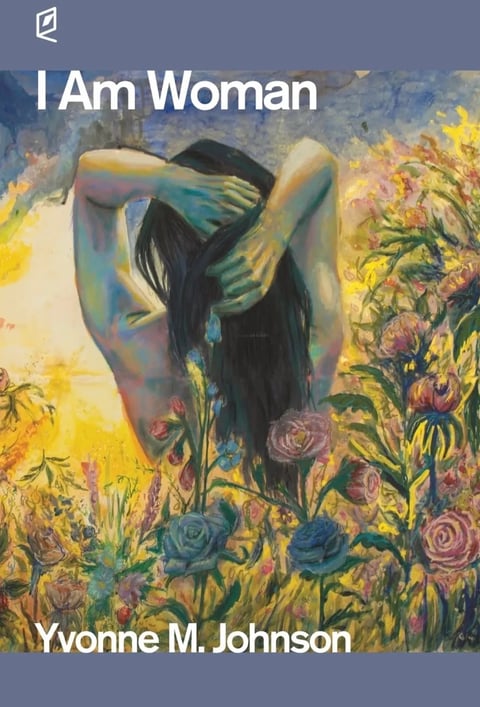

Sacrilegion (The Carolina Wren Press Poetry Series Book 16) by L. Lamar Wilson
Sacrilegion chants new songlines of the sacred and profane, radiating legions of regions we must all negotiate together. Love, life, identity and language wrestle and riff here with pure expressive power. --Lee Ann Brown, judge's letter
Over and over again, these poems ask us to be ourselves and to rightly remember whatever land we thought of as home. Then they ask us to know homelessness, alienation, (dis)ability. This is a stunning debut doing what poetry must do. --Jericho Brown
You who are looking... holding... questioning... embracing this book should take it home with you. Let it sing you to sleep. Let it call you awake. This is your book. Claim it. --Nikki Giovanni
“L. Lamar Wilson reinvents the memoir in verse with the tour de force of his Sacrilegion. With a keen eye that toggles between reverie and our hopes for the future, Wilson offers a salve for any soul that knows what it feels like to be counted out only to fight back toward resurrection. Few collections will move the spirit like this one; from its incantatory moments to those that speak in tongues, you believe, with every line, that this poet does ‘feel everything everywhere else/more than most.’”—A.VAN JORDAN
I am Woman by Yvonne M. Johnson
"Yvonne M. Johnson's poetry possess an unflinching honesty and lyrical beauty even in the midst of painful subjects. The poems of I am Woman are strongly womanist and Affrilachian. Johnson's mastery of language is precise, yet deeply emotive. She explores the nuances of gender and sexuality with lyrical compassion and give female bodies voice. I will always keep these poems close."
— Kelly Norman Ellis
I Am Woman is electric, unexpected, experimental and alive with longing, heart and physicality. The poems yearn and pierce—question and hold. This collection is alive & seeing. Taking stock of the body—our own & the bodies around us. This is a calling. A watchful gathering. A place to return. Yvonne M. Johnson is a brilliant & stunning poet. Her voice will stay with you long after you read the last poem.
—Ellen Hagen
These brilliant-assed poems are fierce. They will get under your skin. They will make you want to smack somebody, to throw something across the room and not apologize. They make me want to run and hug all my daughters, to bow down in humility, to be a better man. It takes a rare gift and command of craft to conceive, compute, engineer, and manage such intricate forms without once surrendering the beauty and power of words. This collection will crack you wide open, fill you up and leave you longing for more. To love these poems is to stand in solidarity with everything good and whole!
—Frank X Walker
Accents Publishing is proud to bring to you the first poetry collection by Affrilachian poet Yvonne Johnson. I Am Woman is an exploration of how patriarchal societies define womanhood. Many women find themselves in a world where rape culture and purity culture dominate how they view their body and what it means to be a woman. This chapbook confronts many topics from the sexualization of the female body and a lack of sexual education to experiences of sexual abuse and the complexities of gender.
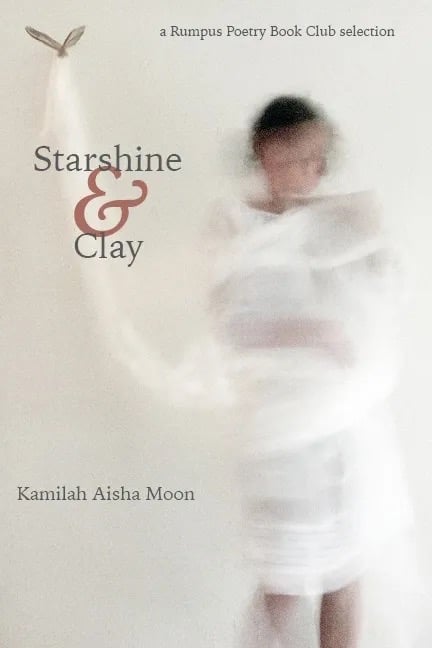

Starshine & Clay (Stahlecker Selections) by Kamilah Aisha Moon
"Moon, rages against racist violence in America in her second collection, while also finding moments of beauty in nature as well as human kindness. The specter of police brutality looms large as she lists its victims, including Michael Brown, Eric Garner, and Tamir Rice.... She juxtaposes these current events with their historical counterparts--lynchings, concentration camps, slavery--and a skillful sestina about a Jefferson Davis statue in Mississippi illuminates the lingering terror of Confederate memorials. Moon advances benevolence as an antidote to the poison of persecution. She writes of a deceased friend living on in the form of organ donation. And despite instances of clichéd metaphors, she crafts some remarkable imagery, particularly when describing her mother's chest after a partial mastectomy as well as her own experience undergoing uterine surgery. Throughout, Moon explores the body and the many traumas it must absorb, confronting death, survival, and the space in between with grace and radiance."-- "Publisher's Weekly" (1/1/2017)
We are making our lives up “here on this bridge / between starshine and clay” (Lucille Clifton). Addressing tough circumstances tenderly, this book is about life―what we inherit, what we create, what shapes us, what’s possible.